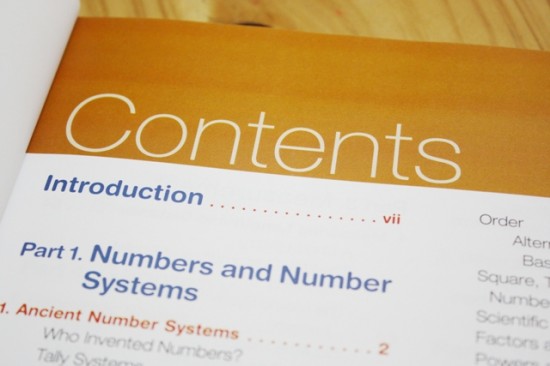advertisement
This is the first in a four-part guest series on reference skills by Jimmie from Jimmie’s Collage. Make sure to check back for part two next Tuesday.
advertisement
Being an educated person today is more about knowing where to find information and how to evaluate that information that it is about knowing large quantities of facts. As a result, one of our primary tasks as homeschooling parents is to teach our children to learn independently through reference tools.
In fact, reference skills are cross-curricular skills that are part of the scope and sequence of many academic areas – language arts, science, history, and math. You really could call them learning skills.
In the upper elementary years and certainly by middle school, you will want to introduce these three essential tools:
1. The index and table of contents
2. The atlas
3. The dictionary
(Throughout this series, I will be assuming the use of physical books instead of “googling” the answer to your question. Although using the Internet to answer questions is a valid way to research, my focus is going to be on using the traditional forms of printed reference books. Both avenues, printed and electronic, are critical for our children to understand.)
Studying a unit where you focus in-depth on the specific skills, say a dictionary unit, for example, is effective. But most effective is integrating these skills into your existing curriculum. The beauty of this approach is that you don’t have to design a special unit or add onto your already busy homeschool day. Instead, you simply need to be deliberate about taking the naturally occurring opportunities to use the reference tools.
Those natural opportunities arise when
- BEST CASE SCENARIO–Your children ask questions about what you’re studying.
- SECOND BEST –You think of questions about what you’re studying.
- STILL A NATURAL OPPORTUNITY –You realize there are things related to what you’re studying that your children don’t know.
The first occurrence is the best because you can build on a child’s own curiosity. The other two, although less motivating for the child, do give you a chance to model curiosity and to pull out the reference tools in a natural way that flows into your curriculum.
Let me give an example to help you understand. Imagine you’re reading a novel aloud to your children and the book references the swamp harrier, a bird on the island of Tonga.
- BEST CASE SCENARIO –Your child asks, “What does a swamp harrier bird look like?”
- SECOND BEST —You ask, “I wonder where Tonga is? Is that in the Caribbean or in the Pacific?”
- STILL A NATURAL OPPORTUNITY –You know that your child has never heard of Tonga, so you suggest you both look it up in the atlas.
Whatever the situation, you can pull out a reference book and look up the answer alongside your child.

Join 40,000+ Other Awesome People
Subscribe to the Real Life at Home weekly newsletter to get our latest content, exclusive free printables, learning activities, and ideas for celebrating with your kids all year

This is something that needs to be focused on so much more. Kids don’t realize that Wikipedia is not considered a reliable source. And once they get to college, these skills will become incredibly important.
Having studied psychology and needing to research different studies, the only help I got from the internet was via searches on specific journal-related search engines for respected publications and research journals. Learning the basics prepares your for this level of research.
I am so glad you are tackling this and can’t wait to see what’s next!
Oh I love this, great idea for a series!!! I think teaching reference skills is one of the most neglected things – I don’t know why but kids just aren’t taught to look things up!!! I usually begin by teaching my kids how to find things in their Bible… start with the contents… get the book, get the chapter, get the verse… there is a whole lot going on there!!! And from there we search in dictionaries and encyclopedia’s. I ban computers during school time, just because of this!!! Today my 11 year old was trying to find put about the mythology of the Nile River… but every time he looked for Nile river he got the geography of it… He had to figure out what he was really looking for, rather than just hitting google!!!